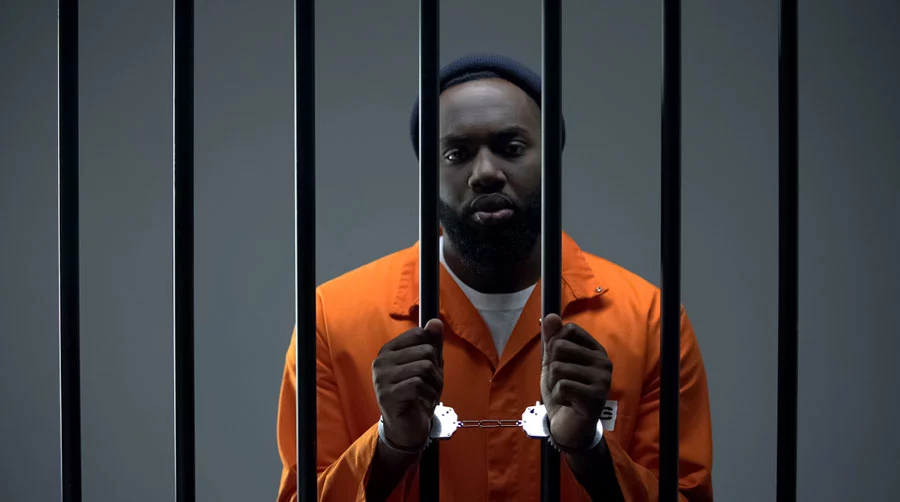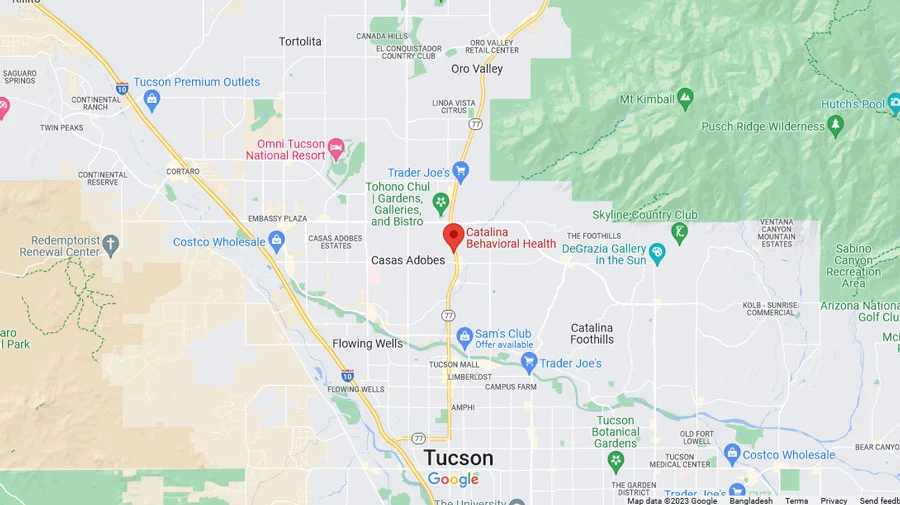Get Treatment Services to Satisfy a Judge’s Order
There is little that is more debilitating and frustrating than being caught in the throes of addiction. Many people struggle against it, only to feel helpless when they can’t overcome it on their own. When the law gets involved, it can even begin to feel hopeless.
If you (or your loved one) finds yourself facing a court-ordered drug or alcohol rehab program, you may feel a bit lost; after all, figuring out what drug rehab centers are in your area and what type of drug treatment they offer is quite overwhelming when you’re already coping with addiction and a criminal sentence.
When a crime is committed due to addiction, the court may order the defendant to participate in a court-ordered drug rehab program, also known as “court-mandated treatment” or “court-ordered treatment”.
If you’re feeling overwhelmed, don’t worry — this article will explain what court-mandated treatment is, why the judge may have ordered it for you, the types of programs we offer at Catalina, and why you or your loved one may want to consider our services.
Licensed Drug Addiction Treatment
What Exactly Is Court Ordered Rehab?
Court ordered rehab is a type of treatment for substance abuse that is ordered by a judge as part of a criminal sentence. These programs typically last anywhere from 30 days to a year. During this time, you will either live at a rehab center or follow an alcohol and drug addiction rehab program through an outpatient facility.
There are a variety of treatment options available in court-ordered rehab, including detoxing, counseling, group therapy, one-on-one therapy, and medication-assisted treatment.
If you’ve been ordered to go to rehab as part of a criminal sentence, there may be legal benefits to completing the program. In some cases, completing rehab could lead to a reduced sentence. If the alleged crime is minor and the defendant is particularly lucky, the court may even offer to dismiss the charges entirely if the defendant completes rehab and stays clean.
Why Do Drug Courts Order Rehab?

Substance use disorder (SUD) has become a significant problem in the United States, and it’s very difficult to overcome alone. Unfortunately, a staggering amount of jail inmates around the country are struggling with substance use; in fact, 50% of jail inmates commit their crimes while under the influence of drugs, and two-thirds of inmates are considered “regular users” of drugs.
However, if you accept voluntary treatment, persistently work towards overcoming your condition, and attend rehab regularly, not only do you have a chance to reduce your sentence, but you also have a chance to escape addiction once and for all.
Many times, when a judge believes that the defense is struggling with addiction, they will order them to attend rehab. If you’ve been ordered to attend such a program, it’s because the court has recognized that you need help. While it may seem like an inconvenience, these programs can help you get clean and sober so you can repair relationships, acquire support networks, and hopefully avoid future legal problems.
However, there are some criteria that your case must meet for this to be a viable option.
When Can a Court Send the Defense to Rehab?
An alcohol and drug treatment program may be court-ordered if the defense:
- Has committed a nonviolent crime
- Has committed an offense that resulted from alcohol or drug abuse
- Is eligible for a probationary sentence
However, treatment can also be mandated whenever the court has sufficient reason to believe that the defense will benefit from treatment in an alcohol or drug rehab center, or by a person on probation who seeks support as well.
It is important to note that not all defendants who struggle with substance abuse will be ordered to participate in a rehab program. The court should only order this if they believe it is necessary.
When Might a Judge Order a Defendant to Go to Rehab?

There are a number of different scenarios in which the court may order someone to participate in a rehab program. Some of the most common include:
- DUI/DWI: DUIs (driving under the influence) and DWIs (driving while intoxicated) are serious offenses. If you are charged with one of these crimes, the court may order you to participate in a program so you can sober up and stay clean to reduce the chances of this happening again.
- Probation: If your alleged crime is indirectly or directly related to addiction, the court may order you to go to rehab as part of your probation. The hope is that this will reduce your odds of re-offending.
- Child custody: If you are fighting for custody of a child, the court may order you to participate in a rehab program if they are concerned that you may abuse drugs or alcohol around the child. This is because abuse of drugs and/or alcohol puts children at serious risk of abuse or neglect.
What Types of Drug and Alcohol Addiction Treatment Programs Are There?

The type of program that you participate in will depend on many factors, including your criminal history and the severity of your addiction.
Some of the different types of programs include:
- Accelerated Pretrial Rehab Programs: First-time offenders who have been charged with a nonviolent crime may be eligible for an accelerated pretrial rehabilitation program. Individuals under this program are subject to two years of court supervision. If they successfully complete the program, their charges will be dismissed.
- Educational Programs: People charged with a DUI or DWI may be required to participate in an educational program. These programs usually involve attending classes and lectures about the dangers of driving while under the influence of alcohol or drugs.
- Group Counseling Programs: These usually follow a 12-step model wherein the individual attends meetings with a licensed counselor or therapist and a group of other people who struggle with addiction.
- Residential Counseling: In most cases, only people with severe drug and alcohol addiction are court-ordered to participate in residential counseling programs. Residential counseling usually occurs in large treatment centers, where people struggling with addiction can receive around-the-clock support while escaping their addiction.
- Detox and Inpatient Treatment: The defense may be court-ordered to participate in a detox and inpatient treatment program. This involves undergoing detoxification to rid their body of drugs and alcohol, then participating in intensive treatment that usually lasts 30 – 90 days. Like any other inpatient program, the defense will need to live within the treatment facility until the program concludes.
A drug and alcohol treatment facility that works with court-ordered patients will usually offer multiple treatment options.
Catalina Behavioral Health is a licensed and accredited alcohol and drug rehab center in Tucson, Arizona, that caters to clients who have been court-ordered to participate in rehab.
If you or someone you know has been ordered by the court to participate in an inpatient or outpatient treatment program, don’t hesitate to contact Catalina Behavioral Health today.
24 Hour Addiction Treatment
What Are the Benefits of Alcohol and Drug Rehab Programs?
While it may be due to legal pressure, spending time in a treatment center is a fantastic way to manage substance abuse problems.
Whether you’re looking to find voluntary treatment and professional care or you’re looking to satisfy the requirements of your alternative sentencing and probation officers, working with a treatment center like Catalina Behavioral Health can be beneficial in several ways.
For example, once you enter treatment, you can:
Learn Life Skills and Coping Strategies

Through these programs, you can learn how to cope with your addiction and triggers while developing essential life skills that will help you stay sober after you leave treatment.
In addition to group and individual therapy, you may also participate in stress management, budgeting, and conflict resolution activities. These skills will not only help you stay sober but also live a healthier and more productive life.
Avoid Incarceration
Rehab programs can help you get your life back on track and avoid future run-ins with the law. Not only will recovering from addiction help you avoid illegal substances, but by healing in rehab, repairing strained relationships, and preparing a strong support system among peers, it will be easier to avoid breaking the law if you find yourself in dire need.
This isn’t just theoretical; the National Institute of Justice (NIJ) has found that addiction rehabilitation has a measurable impact on recidivism rates. A “recidivism rate” is the percentage of prisoners who are arrested again after being released from jail in the past; for example, if a prison released 100 inmates and 30 were arrested again, their recidivism rate would be 30%. According to the NIJ, by implementing effective addiction rehabilitation programs, recidivism rates could be reduced by 15 – 20%.
Heal in a Safe and Supportive Environment

Treatment centers are safe and supportive environments for you to begin your journey to recovery. The structured nature of these programs can provide you with a sense of stability and routine, which can be more helpful than you may expect.
In addition, you will be surrounded by people going through similar experiences, which can create a sense of camaraderie and support.
Safely Manage Drug Addiction Withdrawal Symptoms
Withdrawal symptoms can be highly uncomfortable and even dangerous.
Treatment facilities that manage court-ordered drug rehab programs will have medical staff on-site to help clients safely detox and deal with withdrawal symptoms.
After detox, clients can participate in therapy and other treatment activities to address their drug or alcohol addiction’s underlying causes.
Address Underlying Mental Health Conditions
People who struggle with substance abuse often have underlying mental health conditions, such as depression, anxiety, or PTSD.
Through alcohol and drug rehab centers, clients can get help with their mental health conditions, making it easier to stay sober in the long-term.
Mental health treatment can include medication, individual therapy, and group therapy.
What Are the Consequences of Not Completing Court-ordered Treatment?

Addiction treatment is a great opportunity for you to get the help you need to overcome your addiction and avoid future run-ins with the law. If you don’t complete your court-ordered treatment, you may face several consequences, including:
- Jail Time: This is one of the most common consequences of not completing court-ordered rehab. You may be required to serve the remainder of your sentence in jail if you do not complete treatment.
- Probation Violation: If you are on probation, failing to complete court-ordered rehab may be a probation violation. This can lead to additional fines, jail time, or an extended probationary period.
- Increased Sentence: If treatment is part of your sentence, failing to complete treatment can result in an increased jail sentence.
Immediate Placement for Addiction Treatment
Choosing Catalina Behavioral Health for Court-Ordered Rehab
Choosing from various treatment facilities in Arizona can be overwhelming, if not impossible.
Clients need to look for a facility that will meet the court’s requirements and their own individual needs.
But with Catalina Behavioral Health, clients can get the help they need to find the right addiction treatment program.
Here are some of the ways we can assist clients:
- Medical Treatment: Our team of licensed and certified medical professionals can provide clients with the care they need to detox safely and deal with withdrawal symptoms.
- Mental Health Treatment: We treat the whole person, not just the addiction. Our team of mental health professionals can help clients with underlying mental health conditions that may be contributing to their addiction. This also includes those needing to find court ordered mental health treatment in Arizona.
- Addiction Treatment Programs: From alcohol to methamphetamine, we offer various programs to meet each client’s needs.
- Outpatient Services: Recovery is a lifelong journey. After completing one of our residential programs, clients can take advantage of our outpatient treatment services to help them stay on track.
Choose Catalina: Live Free and Get Sober

If you or your loved one need a court-ordered drug or alcohol rehab program, we understand that finding a rehab in Arizona can be nothing short of overwhelming. However, this may be your chance to get the help you need to overcome addiction and have a better life.
For a sympathetic and supportive environment for recovery, join us at Catalina Behavioral Health. We understand that addiction can be challenging to break free from, and we are committed to helping clients overcome addiction with personalized care and a professional team.
If you or a loved one wants to make the most of court-ordered drug rehab, reach out to us today for an understanding ear and expert advice!





